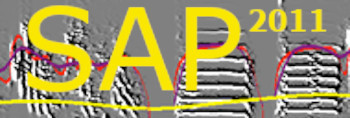Exhaustive clustering
| < PREVIOUS: Correcting errors | |
|
|
|
|
Exhaustive clustering As stated earlier, the cluster analysis method included in SAP2011 is far from perfect, and we hope to incorporate the new approach that Aylin Cimenser is currently developing shortly. In difficult cases, one can still succeed to cluster using the exhaustive clustering approach as following:
· Start from the easiest (most prominent and distinct) clusters and cluster them throughout development.
· Use the mySQL Workbench to split the data into unclustered and clustered tables:
CREATE TABLE bird109_unclustered SELECT * FROM syll_r109 where cluster=0;
CREATE TABLE bird109_clustered SELECT * FROM syll_r109 where cluster>0;
ALTER TABLE bird109_unclustered CHANGE recnum recnum PRIMARY KEY;
· Open SAP2011 and cluster bird109_unclustered - you might find that this is an easier task now
· Finally, merge the two tables in mySQL Control Center typing
INSERT INTO b109clustered SELECT * FROM b109unclustered
Comment: always make sure that recnum is the primary key and that the table is sorted by recnum. You can always change sorting by editing the table and changing sorting in
Also, you can sort by any field after deleting recnum, and then recreate recnum as the primary key and auto-increment to change sorting order as desired.
|
|
